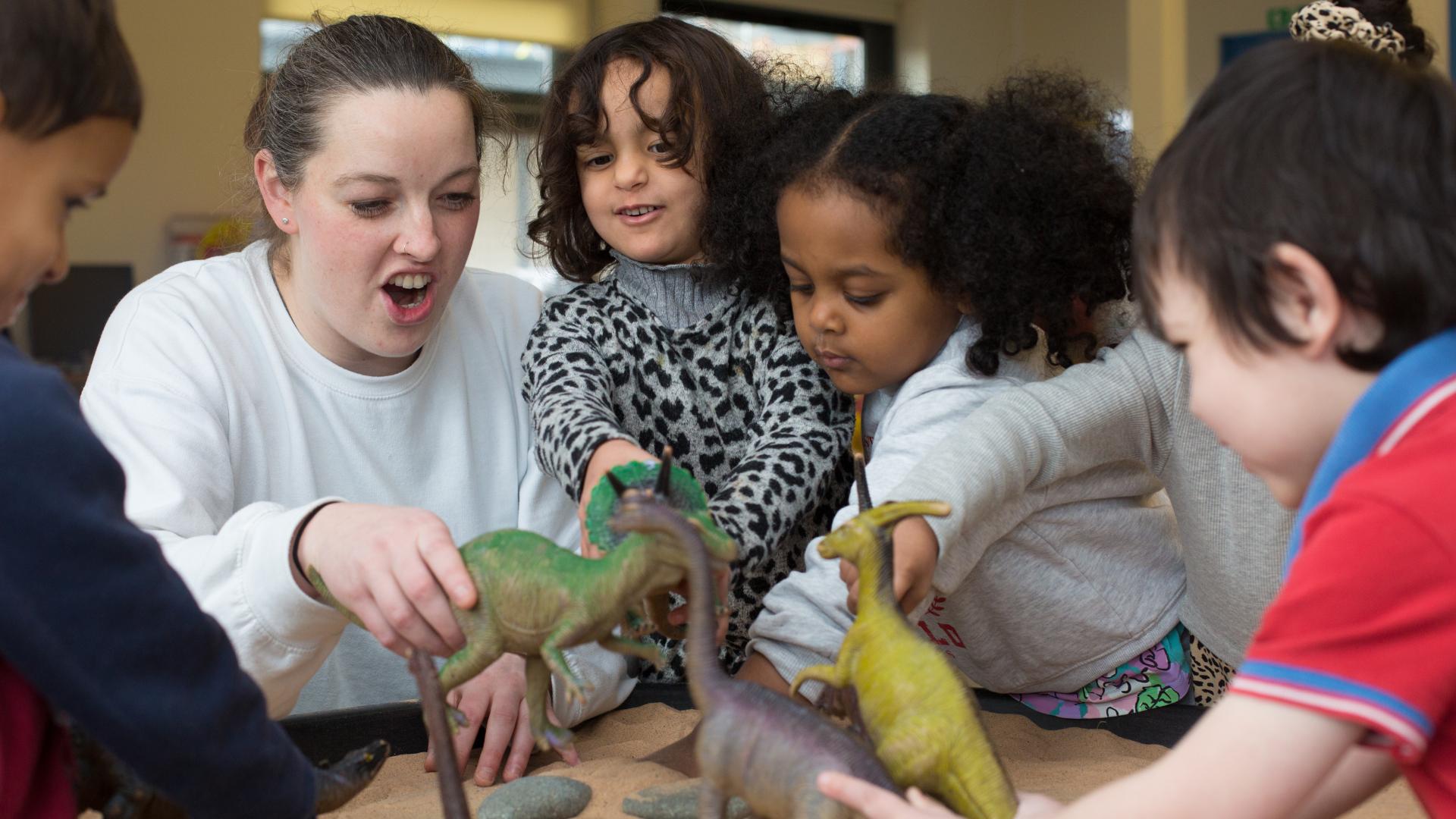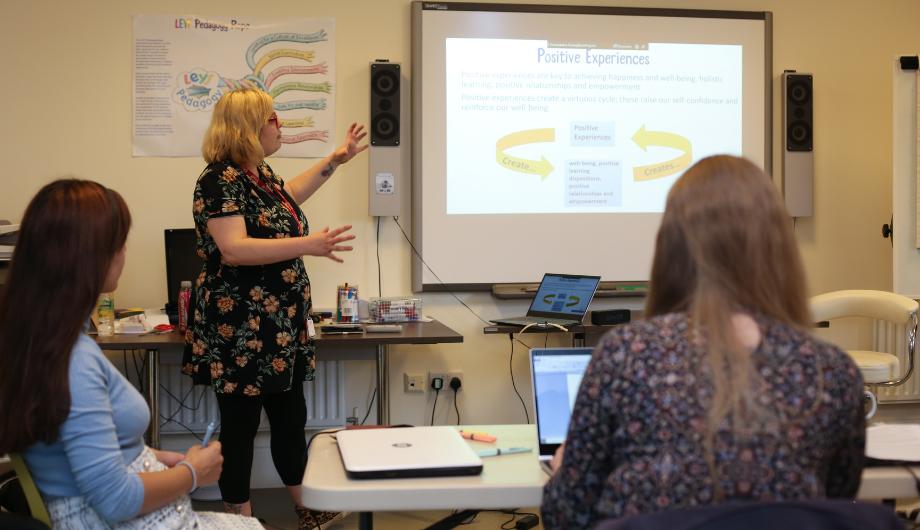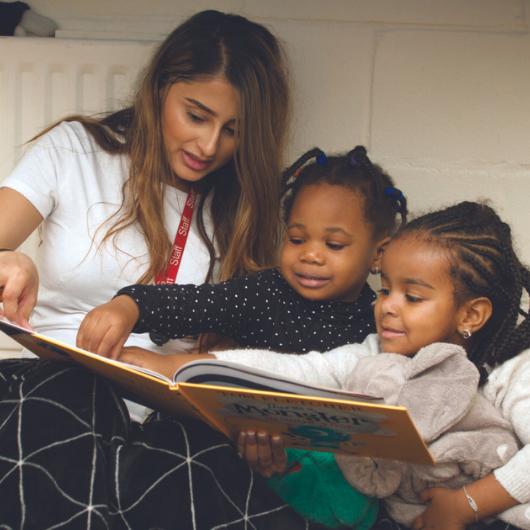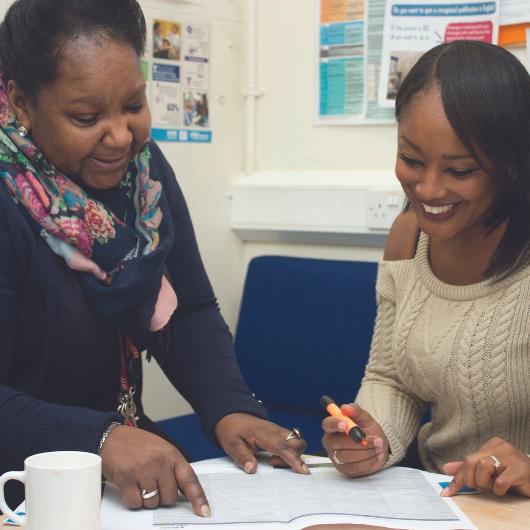Ofsted has just published Report 2…

…part of our series of subject-based curriculum research reviews. Do you remember the first one Best Start?
This second one is also worth a read and focuses on the 3 prime areas of learning the factors that contribute to developing young children’s knowledge and skills. Language is central to this and much reflected in the report.
It’s also a good teaching tool for apprentices and new staff. I am not going to summarise it but I have picked out the bits that ignite my passion. Ofsted is trying to help staff, including managers, to understand the principles of Early Childhood Education and Care (ECEC) and the distinction between pedagogy and curriculum. This is useful as we will all need to be able to quote this in our sleep as we seek the support of parents and the public when we are trying to navigate a new set of challenges that will come with the Early Years expansion policy.
The quality triangle of staff, children and great pedagogy is referenced throughout this document, especially referring to the children from disadvantaged backgrounds, most at risk from a policy of underfunding.
Principles of ECEC: Why we make a difference
- High-quality early education benefits all children, both during their early childhood and later in their schooling. It is particularly beneficial for children from disadvantaged backgrounds and for children with SEND, and these benefits continue into secondary school.
- Gaps in a child’s Early Years education can have long-term consequences. Some children are more likely to have gaps than others. Children from disadvantaged backgrounds and children who speak English as an additional language are less likely than others to take up their full entitlement to funded early years provision.
- Early communication and language skills have a significant influence on children’s achievement at school and other later outcomes, including employability and mental health.
- Children from disadvantaged backgrounds lag behind other children by the end of the EYFS.
- Boys lag in communication with the widest gender gap for the most disadvantaged children.
- Process quality and ‘structural’ quality are important in early education. Process quality relates to children’s experiences in Early Years settings. Structural quality relates to staff ratios and qualifications. Setting quality is generally higher with more high-quality staff. Having a qualified teacher has the greatest impact on the progress children make.
Pedagogy: How we teach to make a difference
- Teach so you can ignite children’s curiosity and enthusiasm for learning.
- Effective Early Years pedagogy includes play-based learning, with well-timed and sensitive interaction with adults, guided play where adults have learning outcomes in mind, and short periods of direct instruction to introduce new knowledge.
- Every interaction between a practitioner and a child is a teaching opportunity. The quality of interactions is likely to be more important than the quantity.
- Creating an environment that promotes and supports young children’s language and communication skills will influence their language development. Recent research suggests a correlation between children being in an environment that supports communication and language when they are 18 to 24 months old, their literacy skills and social adjustment at age 5, and their linguistic and social competence at age 7 to 9.
- Babies need consistency in who looks after them so that they can form positive relationships that help their social and emotional development. Likewise, young children need positive emotional experiences.
- Teach vocabulary explicitly. Children can and do learn new words and phrases when they are exposed to language used in context, such as through listening or being read to with books and oral storytelling. But vocabulary teaching, whether planned or incidental is better when it includes strategies such as modelling (for instance, using a target word in conversation to show how it can be used) and recasts (repeating the child’s utterance, but correcting a word-based or grammatical error). Incidental teaching of vocabulary is, therefore, more effective when practitioners are clear about the sorts of words and phrases they want all children to learn and remember.
- Offer plenty of opportunities for children who are disadvantaged or speak English as an additional language to learn and practise speaking and listening.
- Adults think carefully about what children already know and can do when deciding what to teach first.
- Introduce children to new knowledge and followed up by opportunities to practise new learning through play.
- Children with gaps in their knowledge get the additional teaching they need so that they can access the same curriculum as others.
- Consider a child’s interests when choosing activities while also expanding interests further so that children make progress in all areas of learning.
- Support at home is important for children’s early development, in particular opportunities to share books and develop a wide vocabulary. However, children’s experiences at home vary. This is why it is important we focus on communication and language for all children, and particularly for those who do not benefit from a rich vocabulary at home.
Curriculum: The subjects we teach
- Ofsted sets the scene by pointing out the obvious that the prime areas are vital for all babies and young children and are completely interlinked. For example, more developed language and communication are associated with better emotional well-being.
- Personal, social and emotional development underpins children’s early learning and emotional well-being. Warm and positive relationships with adults helps children understand and manage their emotions and relate positively to other children. Developing executive functioning in the Early Years helps children learn and form positive relationships when they start school.
- Communication and language are fundamental to every aspect of young children’s thinking and learning and supports them developing the ‘theory of mind’. It also provides the foundations for later literacy skills.
- There is a reference to the importance of physical development which is heart-warming because children who are more physically active in the Early Years are better at regulating their emotions, participating in social play and supports academic achievement.
- Physical development is central to children’s health and fitness and provides the foundations for later participation in and enjoyment of physical activity and sport. High levels of physical activity improves young children’s health and reduce the risk of them being obese when they start school.
- The curriculum for physical development needs to include activities that will lead to proficiency in a physical skill, so children learn new activities that deepen and extend a child’s capabilities.
Food: The Importance of a Healthy Diet on Learning
The importance of food was raised, so as someone constantly campaigning about the importance of chefs in settings, I was pleased to see the link between good food and healthy children.
- It is widely agreed that early childhood is a critical period for establishing healthy eating habits.
- Ofsted suggests professional development for staff to understand how the setting can contribute to providing healthy food and know how to model healthy eating practices to widen their experiences.
- The report notes that children will try more fruit and vegetables if they have prior sensory experience of them. This is something we have always done at LEYF by ensuring we use real vegetables in the role play area. Gardening is also referenced with an example of growing sugar snap peas.
- As many of us are aware, diets rich in vegetables and fruit have many health benefits. If vegetables and fruit are lacking in a child’s diet, this can affect their long-term health. Certainly, we know from our Chef Academy that teaching chefs about using food from the local region like Peckham Honey and from other countries and cultures widens children’s food preferences.

Finally, Ofsted reminds us that the most effective settings invest in high-quality professional development and a well-qualified staff team is more likely to provide the best quality education and care to children, especially those from disadvantaged backgrounds. I have two suggestions having read the report-
Colleagues:
Read the report and use it to enhance your knowledge and practice.
Ofsted:
Share your own message across to the Government that an engaged, qualified and well-informed workforce is essential if we are to drive quality for all children and, of course, let’s dump the term ‘practitioner’ because this report says much more about our power as Early Years teachers!





